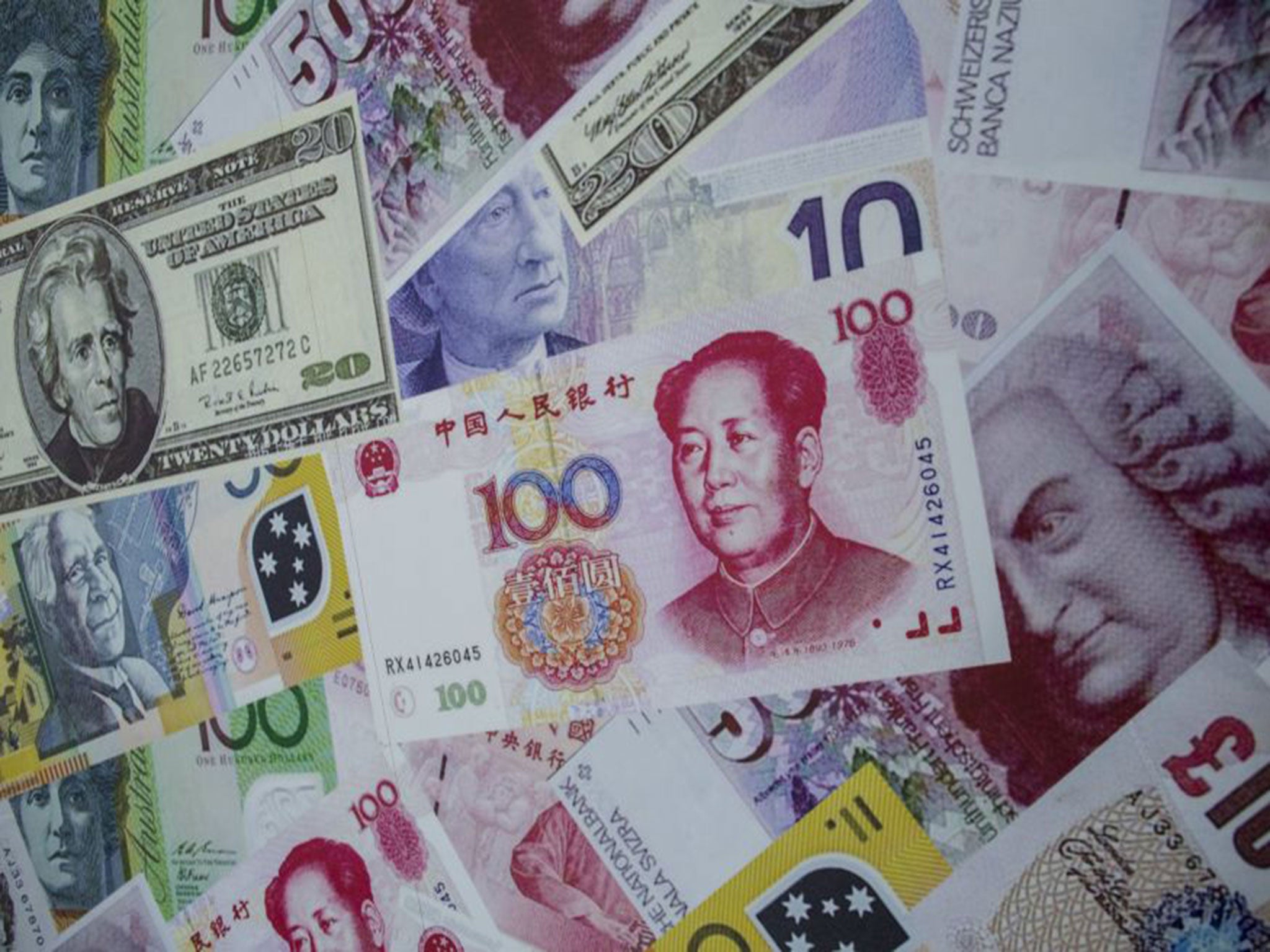China's currency move will be a global hit, warns Goldman Sachs
Goldman Sachs investment bank warned that China's dramatic slashing of its currency is bad news for commodity markets and a bearish signal for the world economy.

Beijing sent tremors through global markets on Tuesday with the devaluation of the state-controlled yuan to pep up its struggling exporters, as well as announcing plans to allow market forces a bigger say in setting its value.
The move hit commodity and oil prices — crude had its worst week since January — amid worries China’s voracious appetite for raw materials will slacken.
Goldman said the devaluation “has been important for commodity markets and we believe it signals that global macro conditions have changed”. It added: “Even China has now joined the negative feedback loop that is running between commodity deflation, growth and deleveraging trends... (and) we believe the net commodity market effects are bearish.”
The investment bank also believes continued spending by the Chinese government is vital to support prices as infrastructure investment accounts for around 25% of steel and 15% of copper demand in the world’s second- biggest economy.
“Removal of fiscal support and a more rapid deleveraging would result in a rapid decline in steel and copper demand,” the bank warned.
Metal prices stabilised today as China’s central bank halted a three-day slide in the yuan. Copper, which sunk to a six-year low of $5062 a tonne at the peak of the panic, was $5197 a tonne. But Neil Mellor, senior currency analyst at BNY Mellon, said markets were “right to fear” a sustained depreciation of the yuan, adding falls would further delay the lifting of interest rates from emergency levels as well as fuelling bubbles.
He said: “The collapse in oil prices last year has already dominated monetary policy decisions globally and has thwarted the move towards policy normalisation.
“It should be recalled that the Bank of England began to make preparations this time last year for a hike, possibly before year end, only for the collapse in oil prices to force it to stand down.
“Additional disinflationary forces upon goods prices would only further postpone the move towards policy normalisation at the cost of rising instability in select asset markets.”
Join our commenting forum
Join thought-provoking conversations, follow other Independent readers and see their replies
Comments
Bookmark popover
Removed from bookmarks